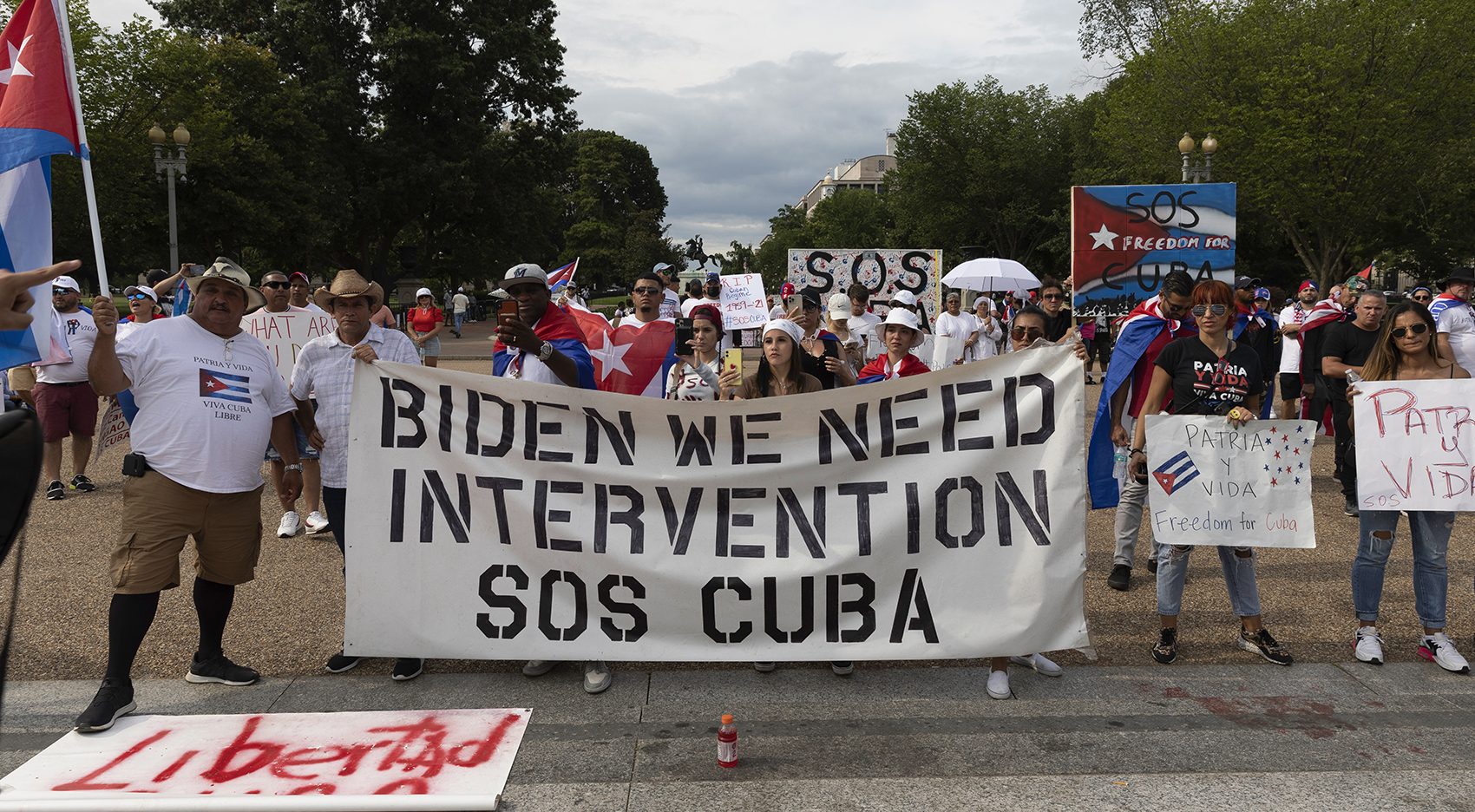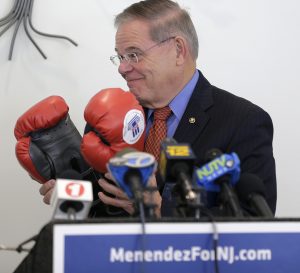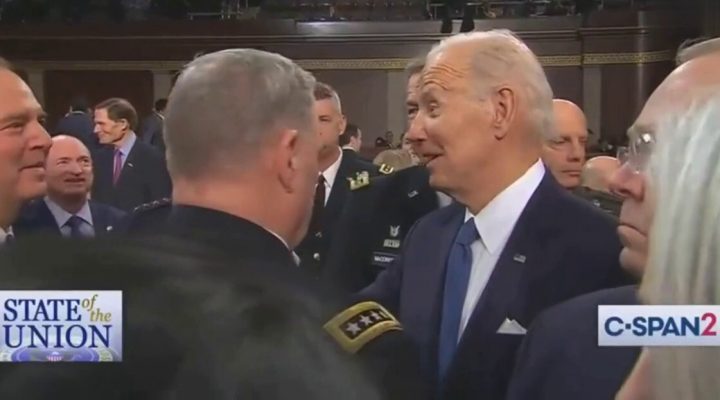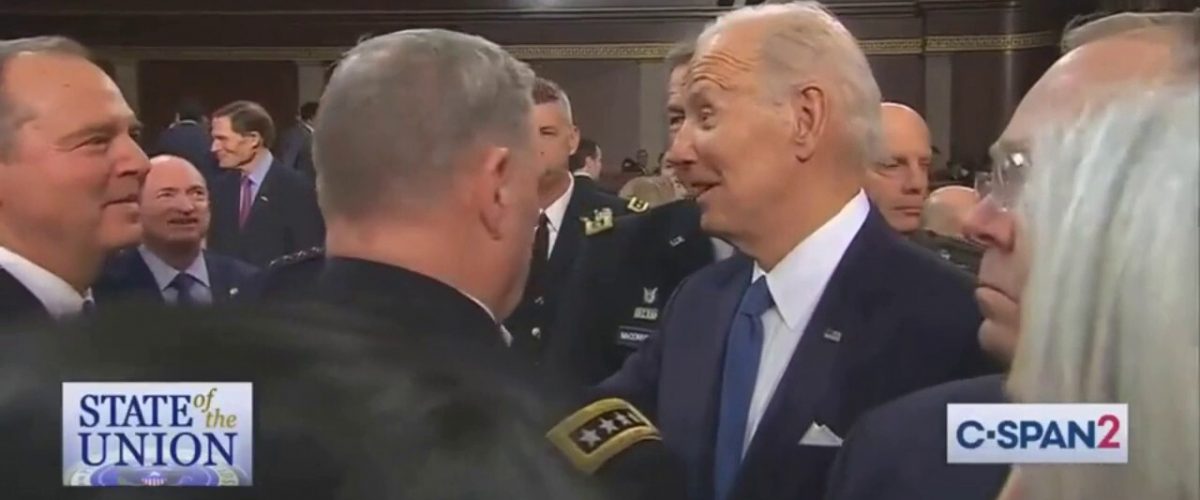“Bob, I gotta to talk to you about Cuba,” President Biden said to Sen. Bob Menéndez (D-N.J.), then chairman of the Foreign Relations Committee, following the chief executive’s State of the Union address last February. “I’m serious.”
The remarks, caught on a live mic as the president made his way out of the House chamber following the annual presidential address during which he was loudly jeered by some lawmakers, was a sign of hope for those of us who for years have advocated for a normalization of relations between the U.S. and our Caribbean neighbor. Sadly, as far as has been reported, nothing came of this conversation.
Instead, relations have deteriorated to the lowest point since former President Donald Trump’s administration relisted Cuba as a “state sponsor of terrorism” just six days after the Trump-led insurrection at the U.S. Capitol on Jan. 6, 2021. The infamous U.S. Department of State designation, revisited periodically, currently lists only four nations — Cuba, North Korea, Iran and Syria.

Demonstrators take part in a protest against the Cuban government outside the White House in Washington, D.C. July 18, 2021. (Photo by Aurora Samperio/NurPhoto via AP)
Biden promise unfulfilled
Along with Secretary of State Antony J. Blinken, Biden has kept Cuba on the list in spite of a pledge during the 2020 presidential campaign to “promptly reverse the failed Trump policies that have inflicted harm on the Cuban people and done nothing to advance democracy and human rights.”
That promise has gone unfulfilled.
On the contrary, as the Washington Post reported last May, “Privately, senior Biden officials have conceded that picking a fight with (Menéndez) is not worth whatever benefit might come from relaxing sanctions on (Cuba and Venezuela), even if it would fulfill a campaign promise Biden made to restore President Barack Obama’s policies toward Cuba.”
Menendez is a Cuban-American vehemently opposed to a relaxation of sanctions against Cuba.
“Privately, senior Biden officials have conceded that picking a fight with (Menéndez) is not worth whatever benefit might come from relaxing sanctions on (Cuba and Venezuela).”
Those Obama policies included, first and foremost, the restoration of full diplomatic relations with the island nation, an indispensable step in overall normalization. Yet Obama lacked authority to undo the crippling economic sanctions imposed by the Helms-Burton Act, passed by Congress and signed by President Bill Clinton in 1996 following the shootdown of two small aircraft by Cuba’s air force.
Whether the planes, flown by a Miami-based group called Brothers to the Rescue, were shot down over international waters is disputed. But the provocative action by Cuban fighter jets provoked a fierce and immediate response by Congress. Helms-Burton passed the Senate on a vote of 74-22; the House vote was 336-86. Since its enactment, only Congress has had the power to undo sanctions.
These include international sanctions specifying that non-U.S. companies that trade with Cuba may themselves be subjected to economic penalties, including being sued in federal courts for millions of dollars. Additionally, officers of non-U.S. companies that deal with Cuba may be barred from entry into the United States. The act also codifies U.S. opposition to Cuba’s membership in officially designated International Financial Institutions and forbids television broadcasting from the United States to Cuba.
The State Department designation of Cuba as a state sponsor of terrorism compounds the economic sanctions imposed by U.S. law. As the nonpartisan and nonprofit Washington Office on Latin America has stated: “Cuba’s inclusion on the list goes far beyond isolating Cuba’s military and branding the country as an adversary. The most egregious consequences stem from the heightened specter of risk associated with any kind of humanitarian aid, business, investment and trade that involves Cuba and, by extension, Cuban citizens.”
Menendez indictments

Democratic Sen. Bob Menendez receives a gift of boxing gloves before speaking to a group of mostly seniors in Bloomfield, N.J., Tuesday, Oct. 30, 2018. (AP Photo/Seth Wenig)
Nearly a year after his open-mic remark to Menéndez on the floor of the House of Representatives, a conversation with the beleaguered New Jersey senator now seems irrelevant. Last September, along with his wife, Nadine, Menéndez was indicted by the Justice Department for seeking to aid the government of Egypt and a second co-defendant, Wael Hana, by securing a lucrative, exclusive, Halal meat-selling certification contract with the Egyptian government in exchange for hundreds of thousands of dollars in cash and gold bars, along with a Mercedes Benz convertible for Nadine.
And in a superseding indictment returned Jan. 2, the Justice Department charged Menéndez with aiding a developer friend in New Jersey named Fred Davies by introducing him to a member of Qatar’s royal family who has a stake in a state-linked investment company. Davies allegedly then sought financing from the Qatari company for a major real estate development in Edgewater, N.J. In return, Menéndez is alleged to have received at least one gold bar for his troubles. And once again, Nadine Menéndez allegedly was involved by receiving tickets to a Formula One Grand Prix race in Miami as a gift for friends. The Menéndez couple has denied all charges, accusing the government of persecuting them.
Following the first indictment last September, Menéndez was required under Senate rules to vacate his position as chair of the Foreign Relations Committee, although he remains a member of the powerful panel. Whether Biden has talked about Cuba policy with new committee Chairman Ben Cardin, (D-Md.), is unknown.
Troubling times in Cuba
Notwithstanding the apparent paralysis in U.S. policy toward a neighbor less than an hour’s flight from Miami, these are troubled and troubling times in Cuba, a land I’ve loved since my first trip there 30 years ago. Back from my 33rd visit last month, I was stunned at the deterioration in economic conditions and quality of life for most Cubans since my previous, pre-pandemic trip there in early 2019.
Their problems are at once myriad and maddening, made all the more so by the self-evident failure of their own government’s policies. Coupled with the strangling effect of the U.S. economic blockade first imposed six decades ago, its codification in Helms-Burton, and the designation of Cuba as a state sponsor of terrorism, short-term prospects for significant improvement are bleak.
Hunger is pervasive, with state food rations chronically inadequate. Critical shortages of medicines and medical supplies mean most patients have to bring their own to hospitals for surgical procedures. Families and friends have to feed them while hospitalized. Mental illnesses, I was told repeatedly, represent a major public health issue, with few specialized facilities for treatment.
Cuba’s myth of a classless society has been shattered by what is now essentially a two-tiered economy.
Inflation is rampant, and only days before the end of 2023 the government announced new austerity measures. Cuba’s myth of a classless society has been shattered by what is now essentially a two-tiered economy — those with family members abroad who are able to send funds to supplement meager incomes are relatively well-off, while those who do not have such support languish in ever-deepening poverty.
Migration is a major issue, with tens of thousands of mostly younger people leaving for other countries, most with an initial stop in Nicaragua, which does not require entry visas for Cubans fleeing the country. Together, Cuban and Venezuelan refugees now comprise a heavy percentage of migrants illegally entering the U.S. at the Mexican border. Doctors and other medical professionals, formerly prohibited from migrating, are finding ways to leave. One of my hosts pointed out that some medical students, four or five years into the required six-year course of studies to become physicians, are quitting their studies to leave. The overall impact is an aging population and an attendant decrease in productivity.
‘The end of us’
Cuba’s mounting problems clearly are not solely due to U.S. sanctions. Again and again during my recent trip, I heard the refrain that Cubans alone can and must resolve Cuba’s economic distress. Repeatedly I listened as my hosts cast most of the blame on their own leaders, the “fat ones,” as they called top government officials, reminiscent of a scene from Victor Hugo’s Les Misérables.
Just as frequent, though, were expressions of disappointment in President Biden’s refusal to reverse Donald Trump’s policies, along with unbridled admiration for those of Barack Obama and effusive praise for his visit to the island in 2016, accompanied by then-First Lady Michelle Obama and the couple’s two daughters.
Despite the dismay at Biden’s failure to restore Obama-era policies, the comment I most often heard was that a second Trump term as president “would be the end of us.”

Stan Hastey
Stan Hastey covered the Supreme Court for the Baptist Joint Committee, Baptist Press and Religion News Service from 1974 to 1988. During the 1990s he was a columnist for Baptists Today. He led the Alliance of Baptists from 1989 to 2009.
Related articles:
Biden administration urged to remove Cuba from list of state sponsors of terrorism
Cuban government clamps down more on religion
How to read the Cuban street protests in light of U.S.-Cuba history | Analysis by Ken Sehested
Understanding Cuba and the United States through July 11 and Jan. 6 | Opinion by Stan Dotson


